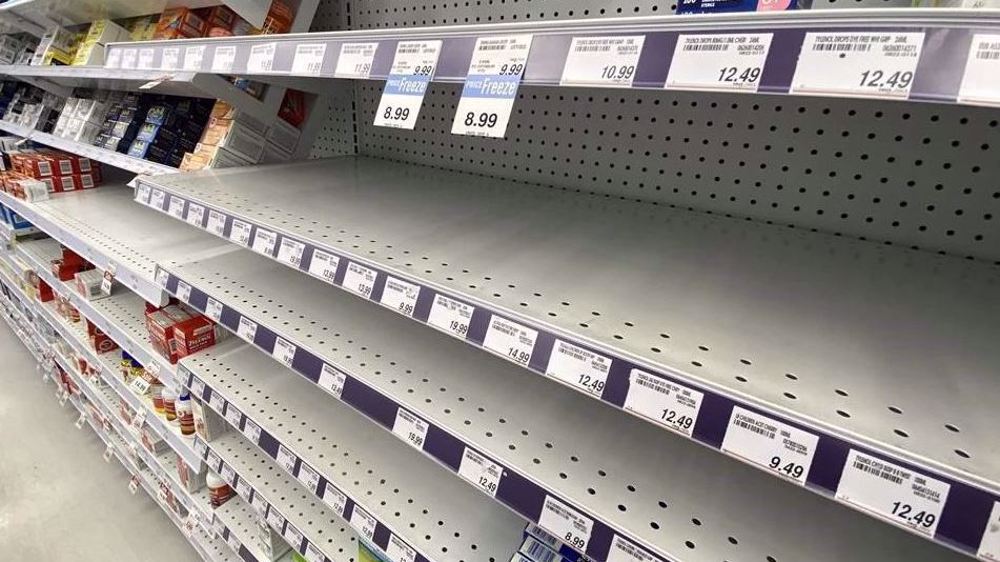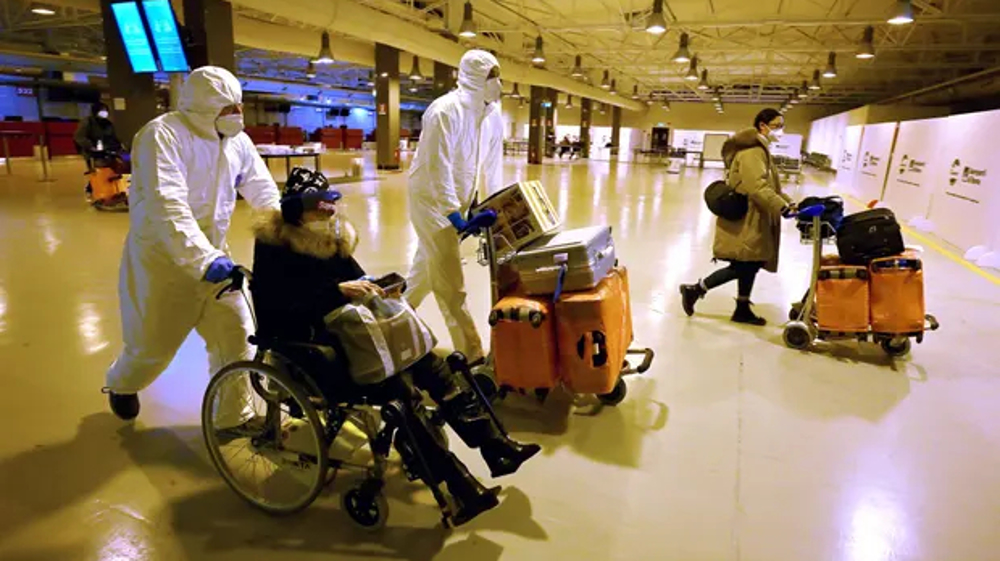Severe shortage of flu medicine raises alarm in Canada
A severe shortage of major adult cold and flu medicine in cities across Canada, including in Toronto, has sounded the alarm.
Many pharmacists across the country reported being either completely out of the adult cold and flu medication or having "minimal supply," according to local media on Monday. This shortage comes just after the shortage of acetaminophen and ibuprofen products for infants and children across Canada, which still hasn't been fully resolved.
Canadian pharmacists say the shortage is the result of unprecedented demand for medications, given the ongoing COVID-19 pandemic, as well as rising cases of the Respiratory Syncytial Virus (RSV) and the flu. The shortage is being exacerbated by panic buying and stockpiling of medicine.
Joelle Walker, vice president of public and professional affairs at the Canadian Pharmacists Association called the shortage a "wake-up call."
"Time and time again...we have a shortage that happens. We all scramble to deal with it and then we sort of move on," Walker told The Canadian Press. "What we'd like to see is a more comprehensive action plan to deal with preventing shortages from happening."
She said the federal government should invest in developing a "critical list of medications" which would allow Canada to take certain actions to bolster domestic production or work with other manufacturers.
Five months ago Canadian parents were struggling to find cold, cough and flu medications for infants and children who were sick with fever and pain. Since then medication shortage still hasn't been resolved.
In an email to CTVNews.ca, Health Canada spokesperson Natalie Mohamed confirmed on Friday that the government is aware of the months-long shortage of medicine across the country.
"Health Canada is aware of elevated demand and supply constraints of over-the-counter adult analgesics – ibuprofen, acetaminophen and combination products – to treat fever and pain associated with cold and flu, and is working with provinces and territories, manufacturers, distributors, health-care professionals to address it," Mohamed said.
According to a poll conducted by the Canadian Pharmacists Association in December and shared with CTVNews.ca. about 25 percent of pharmacies said they were completely out of adult cold and flu medicine while 62 percent had just a “minimal supply” of related drugs.
"So it is definitely something that we're seeing across the country," Joelle Walker, vice president of public and professional affairs at the Canadian Pharmacists Association, told CTVNews.ca on Thursday. "Having gone to many pharmacies, I know that cough suppressants have been off the shelves for quite some time, too."
“I think this is a bit of a wake-up call,” Walker warned.
Tim Smith, pharmacy practice advisor for Pharmacists Manitoba, told 680 CJOB’s The Start that there was no way to predict when the medicine shortage will end.
“Availability dates are kind of a moving target,” Smith said. “This particular shortage will eventually sort itself out. When? Who knows?”
His advice was to consider getting a flu shot and the most recent COVID-19 vaccine in order to stay healthy, and prevent the need for medication down the road while shelves are still bare.
“Every year around this time, we see a lot of people who are getting ill with the common cold, influenza and similar illnesses.
“This year, we’ve seen an uptick in RSV, and COVID is still very much in the picture here, so it seems to be that perfect storm of people all getting ill at the same time and looking for treatment.”
The pharmacy practice expert advised people who are already sick, or have sick friends and family members who need medicine, to stay positive and refer to the pharmacies despite the drug shortages and unavailability of the medicine they might need and ask for "alternative non-medication solutions."
“I don’t want people to give up hope. What I’d encourage people to do who are experiencing symptoms or have family members who are, is talk to your pharmacist, describe the symptoms that you have, and we’ll help you find the best product that’s available for you, or alternative non-medication solutions to help you or your family members feel better.”
Iran’s military alertness main ‘deterrent’ against enemy miscalculations: Top commander
Hezbollah confirms 8 fighters killed in Israeli strikes on eastern Lebanon
Settler attacks in West Bank have displaced 880 Palestinian families: UN
Lebanon’s president condemns Israeli strikes as 'blatant act of aggression'
VIDEO | Epstein and Trump: Scandal, power, and political fallout
Trump admin. advances Saudi nuclear deal, leaves door open to enrichment: Report
Leader donates 50 billion rials to free financially struggling prisoners
Guardians of sky: How Iran’s radar network turned 12-day war into a blueprint for deterrence











 This makes it easy to access the Press TV website
This makes it easy to access the Press TV website